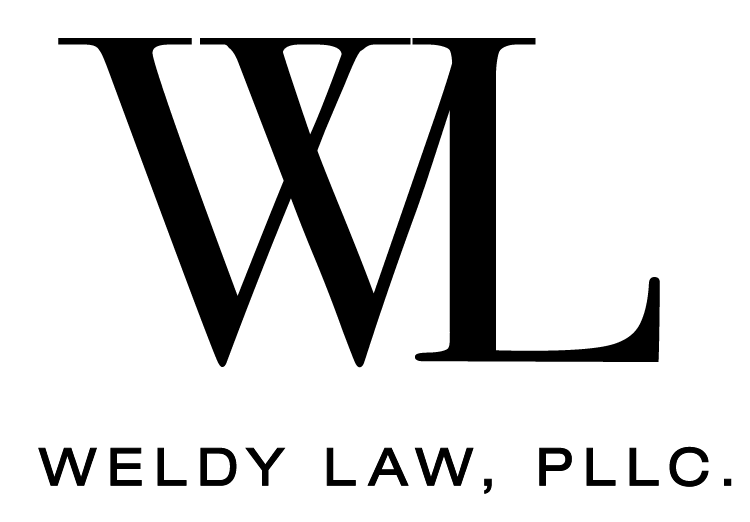Blog Post
Every now and then I come across a heartbreaking story about a father or mother passing away, leaving behind young children. Occasionally, it’s both parents, killed in a heartbreaking accident, and their kids are suddenly left as orphans. Each time I say a prayer and hope that there is a legal plan in place to sort out the “what’s next?” for those family members and friends still here.
But, in many cases, there’s no plan in place and everyone is left wondering what the parents wanted as for who should provide care and love for their children and manage their assets. More than half of those living in the United States do not have a will or estate plan in place. For those in their 20s and 30s, the numbers are even more staggering. But as soon as marriage and children become part of your life, an estate plan really shouldn’t be too far behind.
Of course, no one expects to die, but taking the time now to plan for the unexpected can demonstrate how much you truly care for the wellbeing of your loved ones.
A few reasons young families should have a legal plan in place for the future:
Name a Guardian for Minor Children
If you die, in most cases the surviving parent will be the sole responsible guardian for your children. But what if both of you pass away at the same time? Who will provide and care for your children? It is important that you and your spouse consider a family member or friend and talk to him or her about this possibility. Then, you’ll want to put that selection in writing and make it official. If you don’t, the court will have to appoint someone who may not be your preferred choice to care for and guide your children.
Name an Executor for Your Estate
An executor is a person who you designate in your Will to handle your affairs after death. You’ll want to select someone who is capable, willing and trustworthy to carry out your last wishes. This is also a good time to consider compiling all the information on your assets, noting usernames and passwords for online accounts and auto draft bills, and insurance information. Having all these details together in one place will make it easier for your executor to appropriately handle your estate.
Plan for Disability
Consider another scenario: What if both parents do not die in a tragic accident, but one or both is left permanently disabled? What then? It is important to consider powers of attorney that give a spouse or close family member the legal authority to make health care decisions for you. Given the circumstances, someone other than your spouse may be in a better position emotionally to weigh in on your care if your spouse is unable or unwilling.
When you’ve considered these designations your final step should be to put your plan in place. This is where an experienced estate planning attorney will be able to walk you through the process, offering guidance and ensuring your plan meets your needs.
Weldy Law, PLLC is here to help, contact us today for a free initial consultation!
As the American population ages, adult children of seniors are scrambling to help their aging parents and protect themselves against the uncertainty in the legal system. So lets dig into some of the basic options available:
Starting off with two important points worth understanding: First, Not all estate plans look the same. Each plan should be uniquely fitted to the specific person. While some plans focus on simplicity, others may be designed for helping a family with a special need or designed for tax-savings. Plans may be created to accomplish a vast number of goals. The take away is that there are not one-size-fits-all. Plans should be drafted by qualified attorneys who understand a client’s needs and are able to help the client reach their goal. Second, Don’t be duped by the term “estate planning.” You don’t need to be extremely wealthy or have multiple parcels of property to benefit from estate planning. Most everyone should have a few basic documents such as:
- Wills. A Last Will and Testament specifies how a person’s property will be managed and divided upon death. Importantly, it also allows the testator to appoint an executor (the person who is legally in charge of the estate). The Will can also indicate whether a person wants an unsupervised (or “Independent”) court administration, which generally means less involvement by the court and lower fees;
- Durable Power of Attorney. A power of attorney permits the senior citizen to nominate a trusted person to make financial or property decisions for them (which is often done if the senior later becomes incapacitated). These functions might include duties such as management of bank accounts, stocks and bonds, tax matters or safe-deposit boxes.
- Medical Powers of Attorney. A medical power of attorney allows someone to appoint an agent to make medical decisions if the need arises. Consider a situation where a senior citizen has dementia or another condition that gets progressively worse. Eventually, the person will likely be incapable of making their own medical decisions and will need an agent acting legally to do make decisions on their behalf.
- Additional Helpful Documents or Planning Initiatives. In addition to those listed above, other helpful advance planning can include:
- Guardianship documents
- Making banking accounts payable on death to a senior’s chosen beneficiaries;
- Legal directives that express the senior’s preferences regarding life-sustaining medical treatment if they are in a terminal or irreversible medical condition.
- Using real property deeds that transfer property automatically upon the death of the testator;
- Trusts that are likely to allow a senior to qualify for government programs that help pay for nursing home care;
When done properly, most plans are not expensive or cumbersome. Whether you are a senior citizen who feels that you need to protect yourself or the adult child of a senior who may become responsible for your parent’s future care, we can help you. Our firm regularly designs estate plans for people from all walks of life and with varying needs and goals.
What Does a Durable Power of Attorney (“DPOA”) Accomplish?
A durable power of attorney is a legal document that gives someone you choose (i.e., your agent) the power to perform in your place. A durable power of attorney simply means that the document stays in effect if you become incapacitated and unable to handle matters on your own.You can allow your agent named in the durable power of attorney to do as much or as little as you want. With a valid durable power of attorney, the trusted person you name will be legally permitted to take care of important matters for you. Generally, people allow far-reaching broad power over their finances and expect that their agent will keep accurate records and keep their own personal affairs separate, to avoid conflicts of interest. Some commonly assigned powers include:
Managing your real property. Your agent named in your durable power of attorney administers property in the event of your incompetence.
Addressing your finances. A durable power of attorney can make many decisions and actions on your behalf including bank transactions, paying your bills, attending to tax matters, filling out insurance and benefits paperwork, utilizing your assets to cover your everyday expenses, collecting Social Security, Medicare and other federally issued benefits, investing your money, filing your taxes and managing your retirement accounts.
Dealing with third parties. Companies you do business with, such as your electricity provider and credit card companies will be hesitant to speak with anyone else besides you about your accounts, even if it’s someone to whom you’ve given legal power to act on your behalf. By providing a letter of attorney, your agent will be able to communicate with these companies without any question as to their authorization.
The above listed powers are just a few of the most common authorities given by people to their named Agent under a Durable Power of Attorney. While medical and financial powers of attorney can’t prevent accidents or keep you young, they can absolutely make life easier for you and your family if times get hard. Taking the time to make these documents is well worth the minimal effort it will take. If you have questions on how a Durable Power of Attorney could assist you contact an experienced estate-planning attorney.
Weldy Law, PLLC is available to help clients from all over West Texas work through important estate-planning issues. Weldy Law, PLLC welcomes the privilege to assist you with estate planning and probate matters.
The above blog is for informational purposes and is not intended to be legal advice.
Even after working to take the necessary steps to build an estate plan, many Texans might still sow the seeds of family discord if the proper estate planning strategies are not used.
Often, there is an issue with the division of assets and it has nothing to do with their equal distribution, but their fair distribution. People who are leaving assets, real property, family-owned business, and more to their children will strive to be fair, however when it comes down to making the hard decision as to which child or heir should receive what, additional practical considerations come into the equation aside from the concern of fairness.
For example, if a person has assets that come to a certain amount of value and there are four children, the easy answer is to divide the assets between the children. This may not be an ideal solution. There could be items in the portfolio, like a family-owned farm, that one of the children has no desire to be involved with the operation of the farm and this issue needs to be evaluated when considering estate planning. Perhaps other assets can be traded among the children so everyone will be satisfied and there will not be discord. Similarly, a family business might have some family members heavily involved with the daily operations and other family members not involved in an active role.
For situations like a family farm or business, one strategy that may be beneficial is to have some liquidity in the estate. Life insurance can add to the estate’s value and increase the chance that a fair distribution will be probable. There can be a buy-sell agreement in which there are specific rights among those who own the family business. This can dictate control and how the shares are sold after the person’s death. It will stay in the family as desired and the children who did not want to be part of the business will not feel as if they missed out on their fair share.
For people who are creating estate planning documents, equal and fair can mean two distinctly different things. Often, people worry about the potential for resentment between family members after a death in the family. Many strategies can be utilized to help create a cohesive estate plan that will accomplish the fair and equitable distribution of the estate property. An experienced estate planning attorney can help those interested in creating a customized estate plan make the right decisions that help insure that their estate is handled in accordance to their wishes.
The above blog is for informational purposes and is not intended to be legal advice.
Source: Forbes, “Why Your Estate Plan May Divide Assets Equally, But Not Fairly,” Mark Enghrari, April 30, 2017
Although sometimes not discussed, one of the most important legal issues that arises in the estate administration process is the valuation of the property of the estate. Valuation is principally important because putting the wrong value on a piece of property can mean the estate does not get divided properly in accordance with terms of the will or under Texas law. Poor property valuation can also create tension between heirs and beneficiaries and even lead to costly and timely litigation.
Additionally, not putting the right value on an estate can lead to trouble with federal taxing authorities, assuming of course that the person’s estate is sizable enough to be taxed at the federal level.
For some types of property, getting a value is simple enough. For example, bank accounts, stocks traded on the open market and other financial accounts with a certain dollar value can be evaluated for estate purposes merely by determining how the account’s balance on the date of the person’s death.
Other items are not quite as simple to value. For example, while someone may estimate the value of a home or other piece of real estate using tax records and recent sale prices, often the only conclusive options to get a value is either to appraise the real estate or to sell it in an arm’s length transaction.
Similarly, a person’s belongings and furnishings may require an appraisal. Texas families should be aware that just because an item has a lot of sentimental value, it does not mean that the item has any actual economic value. Many times, personal belongings have no real value and can be given a rough estimate.
Putting a value on the property of an estate is generally not an easy task but is a crucial step. Sometimes, the assistance of an experienced Texas estate administration attorney can be helpful in accomplishing this task.
Weldy Law, PLLC is available to help clients from all over West Texas work through important probate issues. Weldy Law, PLLC welcomes the privilege to assist you with estate planning and probate matters. Call us today for a complimentary consultation- 806-928-2087.
The above blog is for informational purposes and is not intended to be legal advice.


